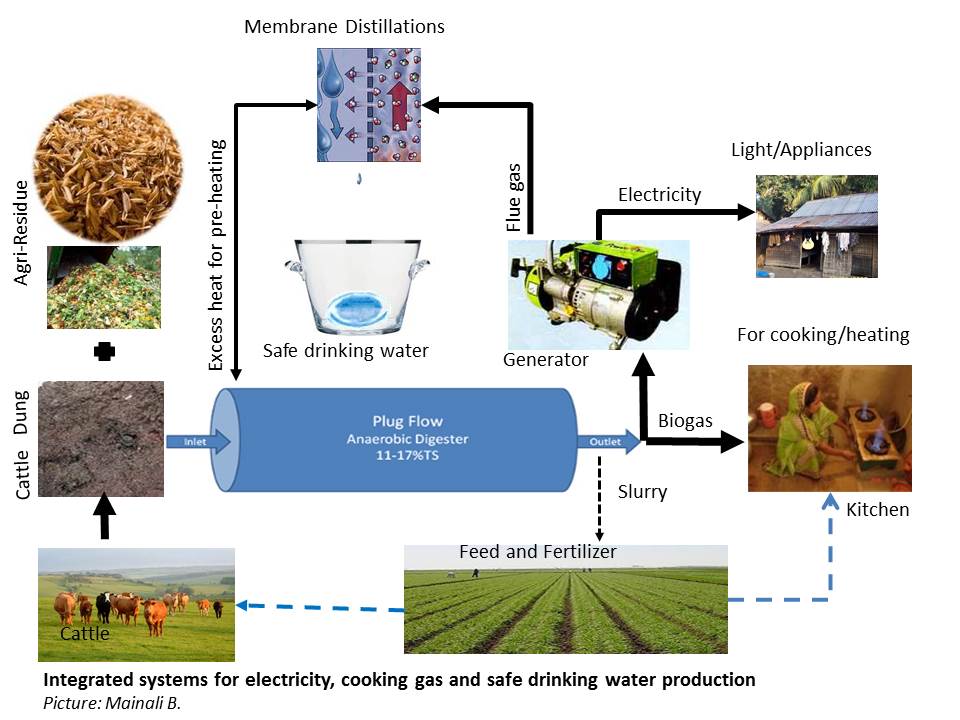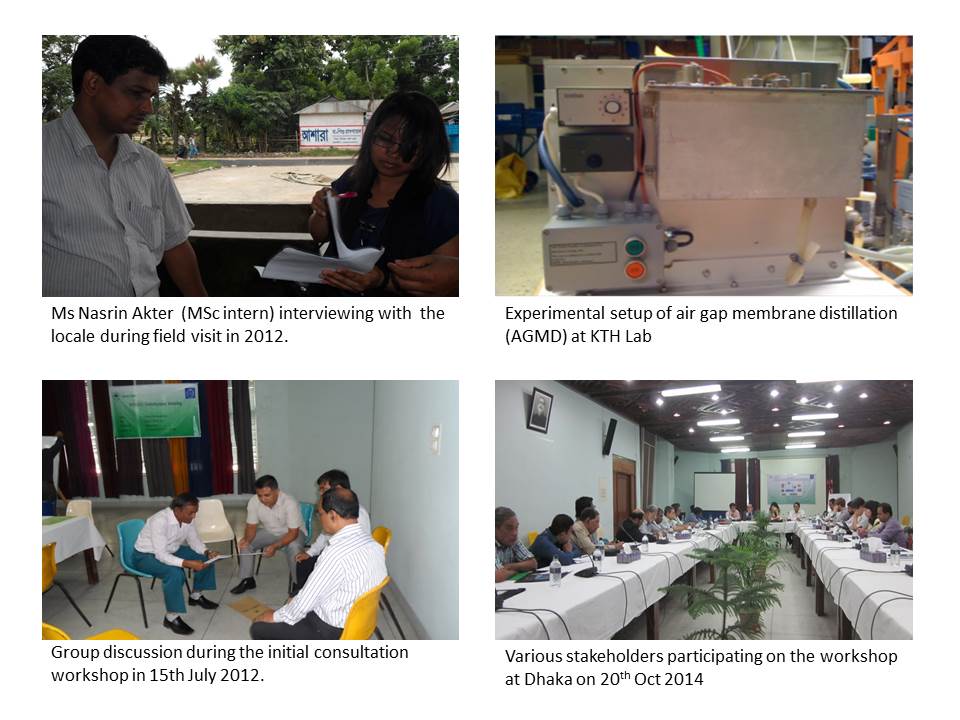Biogas based poly-generation for rural development in Bangladesh
In this project , we have developed an integrated biomass based poly-generation system for delivering electricity, cooking gas and arsenic-free drinking water and validated it’s feasibility in rural areas of Bangladesh. Study has shown that these kinds of integrated systems are technically feasible and attractive in terms of their socio-economic benefits. The Levelized costs of production of various services from such technical system are market competitive and financial returns are also very attractive.
Background
Large populations in Bangladesh have no access to electricity and even those who have access face extreme shortages of electricity, and mostly rely on traditional biomass for cooking. Most areas in the country suffer from ground water contaminated with arsenic which kills thousands every year. Some arsenic removal techniques are also being applied which, although reducing the arsenic content, still do not guarantee the drinking quality of the water. Rural development is a multi-dimensional challenge. Therefore, Energy system solutions have to fit local conditions, providing not only physical infrastructure for energy provision, but also a vector to promote sustainable development.
Objective
The aim of this project was to develop an integrated biomass based poly-generation system and validate it’s feasibility in meeting the cooking energy, electricity and safe drinking water needs of small rural villages of Bangladesh. Integration of three different components (biogas digester unit, electricity generation unit and membrane distillation unit for water cleaning) and supplying services with a system approach is the innovation within this developed technological solution.

Research highlights
The research carried out included lab experiments and local case studies. The MD unit’s performance was tested in lab experiments to verify its efficiency when using low heat from a biogas unit to deliver clean drinking water. On the supply side, the case studies included a resource assessment to verify the potential for biogas production. On the demand side, the case studies served to verify energy needs and evaluate household’s preferences.
The experimental performance test of the MD unit showed that the amount of arsenic level in the water purified througt this process is 0.4μg/liter only, which is in the safeside in comparision to the permissible maximum amount of arsenic (10 μg/liter of drinking water) recommended by World Health Organization.
Study has shown that these kinds of integrated systems are technically feasible and very attractive in terms of their socio-economic benefits. The Levelized costs of production of various services from such technical system are market competitive and financial returns are also very attractive. The case study carrried out in the rural Bangladesh (for an example in Pani Para village) has shown that the large amount of cow dungs and agriculture wastes available in the local vicinity could be used for generating biogas. It was observed that the mono digestion of the available bio-resources wouldn’t be able to meet the all the demands (cooking, electricity and safe drinking water) of typical rural villages. However, with co-digestion of available cattle dung and agricultural residue, the biogas production can be increased. The study demonstrated that it is feasible to supply all the households with electricity and clean drinking water and two-third of household with access to cooking gas, considering both the supply and demand sides. The poor sections of the population had constraint to pay for the bill of cooking gas. One option for such poor households could be providing with improved cook stoves for better cooking environment. Appropriate business model to maintain the regular supply of the various feedstocks is crucial to make this technology sustainable. The study has proposed a business model for biogas based poly-generation system and analyzed the model using CANVAS.
Project Team
Professor Dr. Semida Silveira (Team leader)
Other Team members from KTH
-
Professor Dr. Andrew Martin (Senior team member)
-
Ershad Khan (Team member)
-
Dr. Brijesh Mainali (Team member/coordinator)
In addition, the Masters interns Hassan Ahmed, Nasrin Akter, Caroline Saul and Saad Been Emran have been involved in the project particularly contributing with field work.
Team members from Partner organizations
-
Mr. Aapo Sääsk(SCARAB AB, Sweden)
-
Dr. MS Islam (Grameen Shakti, Bangladesh)
The project was developed during three years between 2012 and 2014, and funded by the Swedish International Development Cooperation Agency (SIDA).
Glimpse of some of the project activities

